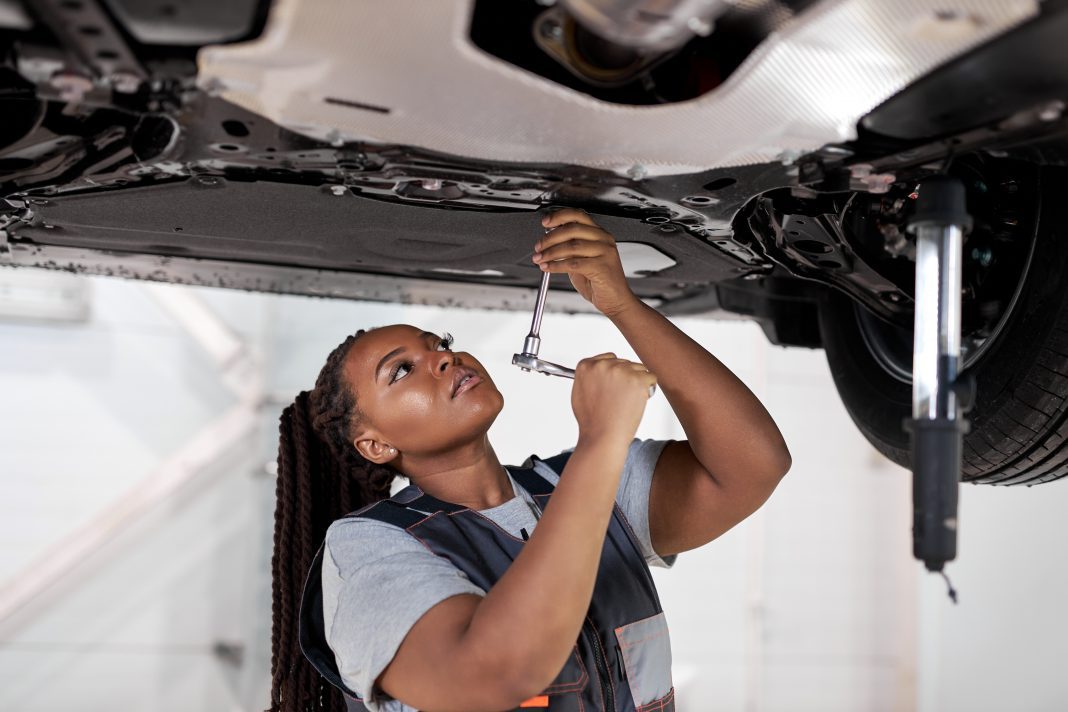In a TechForce Foundation report last year, it was forecasted that the auto, diesel, and collision industries would collectively be short by approximately 642,000 technicians by 2024. Past NADA Chairman Charlie Gilchrist said that their 16,500 members would need to attract 76,000 people between 2020 and 2026 to stay even with the demand in the auto industry alone. There’s no doubt, the technician shortage is real, and if your store isn’t experiencing it firsthand, you know someone nearby that is.
Hiring, training, and retaining technicians is a serious concern for dealerships. Even as the industry pivots to alternative fuels that reduce maintenance needs, trained technicians are a crucial component, especially for highly technical, specialized electrical, or computerized work.
Why is it that the auto industry is under such a crunch for talent on the bench?
| Related: Five industries dealers can look for technicians |
Blue-collar work isn’t seen as respected
For some talented individuals who would excel as a technician, trade school isn’t in the cards. The perception is often that automotive repairs and service is a job that goes nowhere. Especially for millennials and Gen Z school graduates who want their work to matter, this perception rings true. But it isn’t accurate, obviously.
Vice President of Reconditioning at Manheim, Paul Halsch, says, “More young people are choosing to pursue college degrees rather than heading to trade schools—and a lot of that is due to outdated perceptions about their long-term career prospects. Auto technicians, in particular, can have progressive, successful careers that are both satisfying and financially rewarding. Technicians can grow in their careers by gaining various certifications and even move into management roles in the shops or leadership roles at the corporate level.”
Expensive to start with low entry pay
And when someone interested in the trades digs into the details, they find that the entry-level pay is unusually low for someone with a trained skillset. An apprenticeship costs money for schooling, time off of work without income while in classes, and a massive investment into professional-grade tools to even qualify for a position. Apprentice techs can start their career with $40,000 or more in debt.
Comparatively, Amazon has just bumped their average starting pay in the US to above $18 per hour, providing instant earnings without education or investment in tools or equipment, aside from perhaps safety equipment.
What can dealers do?
There’s no easy answer for dealerships to fix the technician shortage. However, a few notable programs have helped foster the next generation of auto techs.
Halsch remarked, “Apprentice programs, like the one Manheim, launched a few years ago, can be a great way to attract new technicians. A few key elements to creating a successful program include designating more experienced techs as mentors and implementing a structured learning experience that includes both online and hands-on training.”
Tapping into education systems early on can be a help as well. According to WardsAuto, the Michigan-based LaFontaine Automotive Group partnered with a local high school to establish mentorships in their Certified Automotive Tech Program.The school recently received an injection from General Motors who provided “tools, components, and two new Chevrolet Silverado pickup trucks for students to work on”. One of their ideas is an internship program for high school seniors in the program.
For dealers, it’s a war of attrition that requires two things: reducing the number of trained technicians leaving the workforce, and building their stable of new technicians. That could mean revisiting pay plans, especially starting pay, or subsidizing school costs. What’s clear is that it’s a problem that requires immediate attention – it’s not going away anytime soon.
Did you enjoy this article from Jason Unrau? Please share your thoughts, comments, or questions regarding this topic by submitting a letter to the editor here, or connect with us at newsroom@cbtnews.com.
Be sure to follow us on Facebook and Twitter to stay up to date or catch-up on all of our podcasts on demand.
While you’re here, don’t forget to subscribe to our email newsletter for all the latest auto industry news from CBT News.











